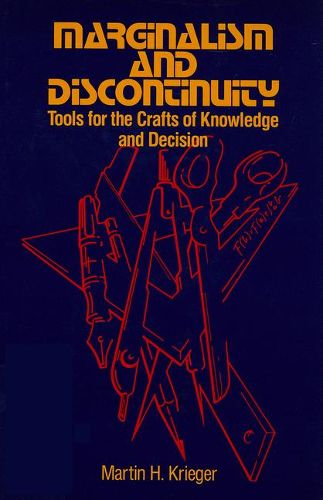Readings Newsletter
Become a Readings Member to make your shopping experience even easier.
Sign in or sign up for free!
You’re not far away from qualifying for FREE standard shipping within Australia
You’ve qualified for FREE standard shipping within Australia
The cart is loading…






This work is an account of the culture of models employed in the natural and social sciences, showing how such models are instruments for getting hold of the world conceptually, tools for the crafts of knowing and deciding. Like other tools, these models are interpretable cultural objects, objects that embody traditional themes of smoothness and discontinuity, exchange and incommensurability, parts and wholes. Martin Krieger interprets the calculus and neoclassical economics, for example, as tools for adding up a smoothed world, a world or marginal changes identified by those tools. In contrast, other models suggest that economies might be sticky or perverted and fetishistic. There are as well models that posit discontinuity or discreteness. In every city, for example, some location has been marked as distinctive and optimal; around this created differentiation, a city centre and a city periphery eventually develop. Sometimes more than one model is applicable - the possibility of doom may be seen both as the consequence of a series of mundane events and as a transcendent moment. We might model big decisions or entrepreneurial endeavors as sums of several marginal decisions, or as sudden, marked transitions, changes of state like freezing or religious conversion. Once we take models and theory as tools, we find that analogy is destiny. Our experiences make sense because of the analogies or tools used to interpret them, and our intellectual disciplines are justified and made meaningful through the employment of characteristic toolkits - a physicist’s toolkit, for example, is equipped with a certain set of mathematical and rhetorical models. This work offers a wide-ranging consideration of the technologies by which we attempt to apprehend the world. It will appeal to social and natural scientists, mathematicians and philosophers, and thoughtful educators, policymakers, and planners.
$9.00 standard shipping within Australia
FREE standard shipping within Australia for orders over $100.00
Express & International shipping calculated at checkout
This work is an account of the culture of models employed in the natural and social sciences, showing how such models are instruments for getting hold of the world conceptually, tools for the crafts of knowing and deciding. Like other tools, these models are interpretable cultural objects, objects that embody traditional themes of smoothness and discontinuity, exchange and incommensurability, parts and wholes. Martin Krieger interprets the calculus and neoclassical economics, for example, as tools for adding up a smoothed world, a world or marginal changes identified by those tools. In contrast, other models suggest that economies might be sticky or perverted and fetishistic. There are as well models that posit discontinuity or discreteness. In every city, for example, some location has been marked as distinctive and optimal; around this created differentiation, a city centre and a city periphery eventually develop. Sometimes more than one model is applicable - the possibility of doom may be seen both as the consequence of a series of mundane events and as a transcendent moment. We might model big decisions or entrepreneurial endeavors as sums of several marginal decisions, or as sudden, marked transitions, changes of state like freezing or religious conversion. Once we take models and theory as tools, we find that analogy is destiny. Our experiences make sense because of the analogies or tools used to interpret them, and our intellectual disciplines are justified and made meaningful through the employment of characteristic toolkits - a physicist’s toolkit, for example, is equipped with a certain set of mathematical and rhetorical models. This work offers a wide-ranging consideration of the technologies by which we attempt to apprehend the world. It will appeal to social and natural scientists, mathematicians and philosophers, and thoughtful educators, policymakers, and planners.